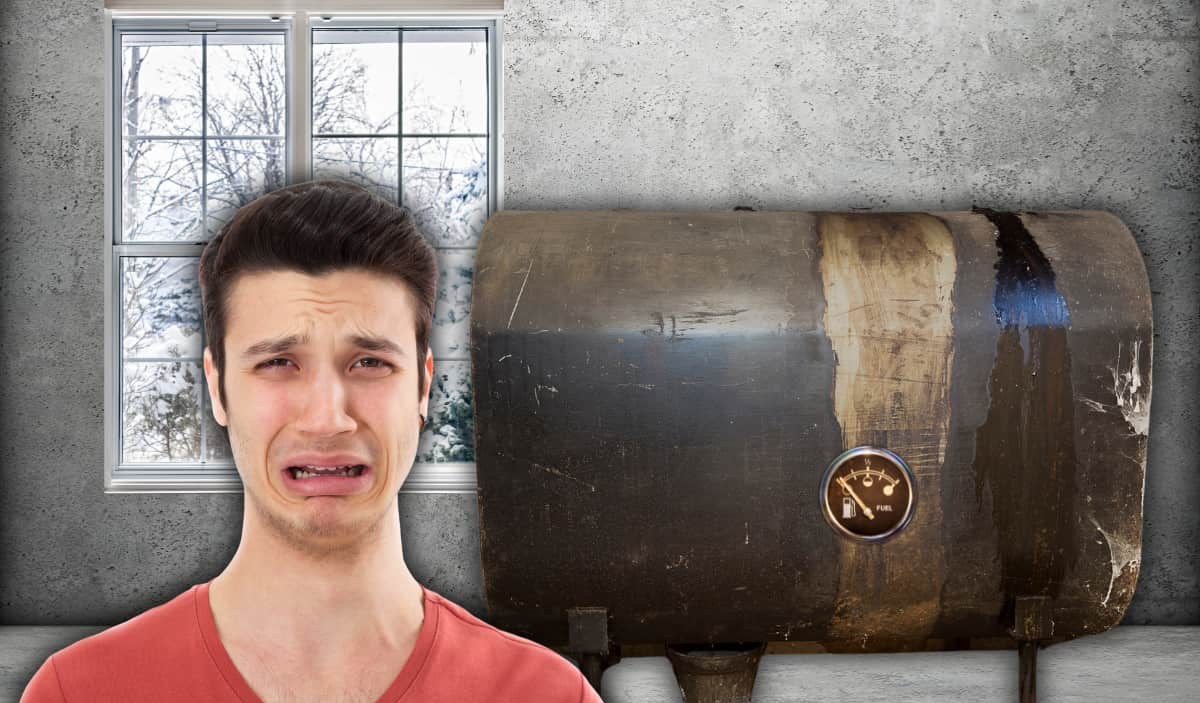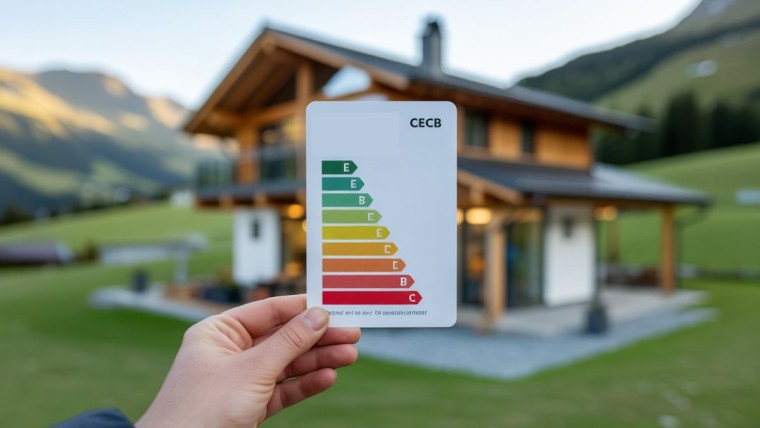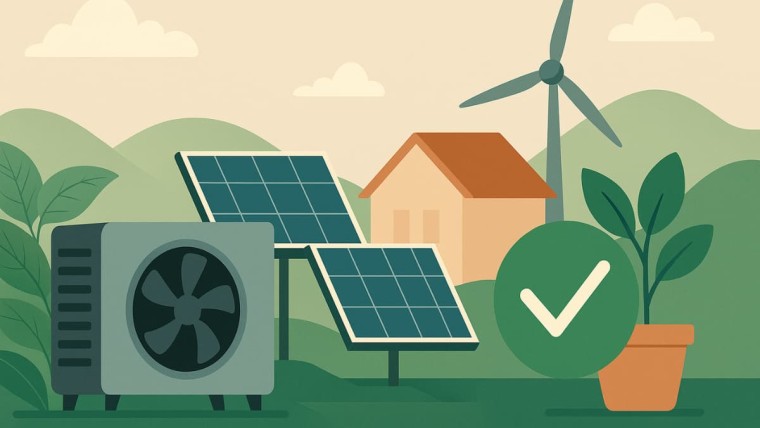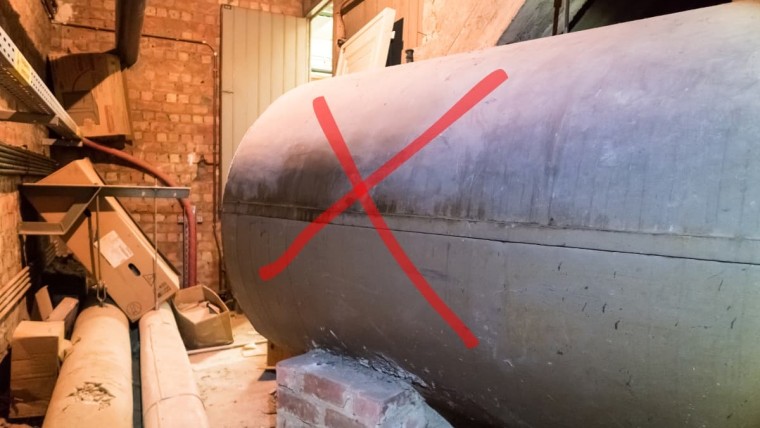After a steady fall in fuel oil prices over the past 2 months, a sudden rise in prices has raised concerns about the heating budget for owners of oil-fired boilers. Given that the minimum refill for an oil tank is often 1000 liters, and that it will cost you more than 1200€ at the moment, it's legitimate to wonder about the heating time that these 1000 liters will give you.
With 1000 liters of fuel oil, you can heat your home for about 2 months. This period varies according to the surface area to be heated, your consumption habits and your comfort standard.
But as we'll see in the rest of this article, by adopting the right habits, you can delay the next tank filling.
Heating time for 110m2 with 1000 liters of heating oil
If the average surface area of a house in France is around 110 m2, we can deduce an approximate heating volume of 300 m3.
Knowing that heating requirements vary from 15 W/m3 for a well-insulated house in a mild climate, to 60W/m3 and more for poorly insulated houses in cold climates. A good average is therefore 40 W/m3.
This means that to heat an "average" house we need 40 * 300 W = 12kW.
1000 liters of fuel oil correspond approximately to 10000 kWh, because 1 liter of fuel oil has a calorific value of about 12kWh.
So all we have to do is divide these 10,000 kWh by the 12 kW requirement and we get 833 hours.
If the heater runs for around 10 hours a day (this depends on many factors), then we get a number of days of 83, equivalent to almost 3 months.
If we consider that fuel oil also produces domestic hot water, depending on your habits, we can add 10 to 20% of consumption. This means you'll last about 70 days on 1000 liters of fuel oil, or just over 2 months.
Of course, if your house is better insulated than average, you can consume up to 2 times less, and vice versa if your house is poorly insulated in a fairly cold region. In some rural areas of eastern France, poorly insulated houses can last 2 weeks on 500 liters of heating oil! The bill is high, if not impossible, for tenants or homeowners on low incomes.
Although these energy passoires are destined to disappear, they will still be the daily lot of many French people in the years to come.
Factors influencing fuel oil consumption
The first factor influencing this consumption is the insulation of the home. Indeed, if you bring heat into a house that retains little or none of it, no matter how much you heat, it's all for the sake of the little birds! There are grants available to help you insulate your home before you think about upgrading your heating system. This will help you reduce your fuel consumption.
The second factor is, of course, your comfort habits. Do you live at a temperature of 22 or 23°C or even higher? Do you like the heat? Of course you do, but you should know that by lowering the temperature by just a few degrees (e.g. 20°C), you can save up to 7% on your energy bill per degree. In other words, if you go from 23°C to 20°C, you'll save around 20%.
The production of domestic hot water in addition to heating is also a factor. If your oil-fired boiler is responsible for heating the hot water tank, then it is potentially switched on more often and therefore consumes more (around 15% more than for heating alone).
Of course, one factor you can't influence is the climate in your region. The colder it is, the higher your energy consumption.
How can I save on heating oil?
It's all about tackling the main factors behind consumption. First and foremost, we advise you to limit your consumption by adopting a few healthy habits.
Lower the temperature within reason, down to 18°C in bedrooms, under the comforter! Maintain a comfortable temperature in rooms where you'll be immobile for several hours.
Improve your insulation. Whether it's your lost or habitable attic space, your interior or exterior walls, or even your floor, every surface element is worth considering when it comes to insulation to limit heat loss. Take advantage of the grants available to you to call in the professionals, or do your own DIY insulation.
What's the alternative to heating oil?
Are you fed up with the smell of fuel oil during and after tank refills? Is your bill too high this winter? European countries such as France, Switzerland and Belgium, and many others, are setting up subsidy programs to help homeowners replace their fossil fuel heating systems with cleaner solutions.
The most popular solution is the heat pump, particularly the air-to-water model, which is easier to install and less expensive. This solution delivers energy bill savings of 50% to 70%, depending on the case.
Another popular solution is the wood-burning stove, and in particular the pellet stove, which uses the renewable resource of wood to heat the interior and create a warm, comfortable atmosphere. While the wood resale market isn't all rosy, and there are many cases of pellet sourcing in Europe, this heating system is nonetheless more environmentally friendly than oil- or gas-fired systems.

Julien G.
Julien, diplômé en ingénierie mécanique et spécialiste en génie climatique depuis 2009, s'est reconverti en rédacteur spécialisé en énergies renouvelables, avec une expertise en pompes à chaleur et panneaux solaires photovoltaïques pour l'habitat individuel.






